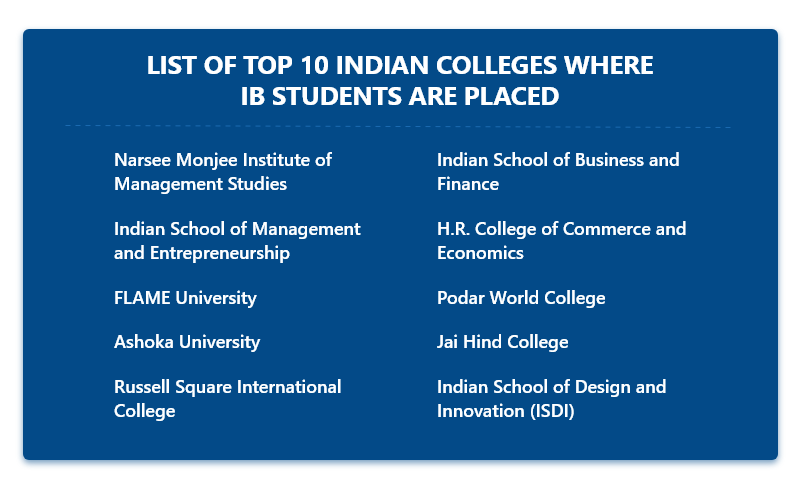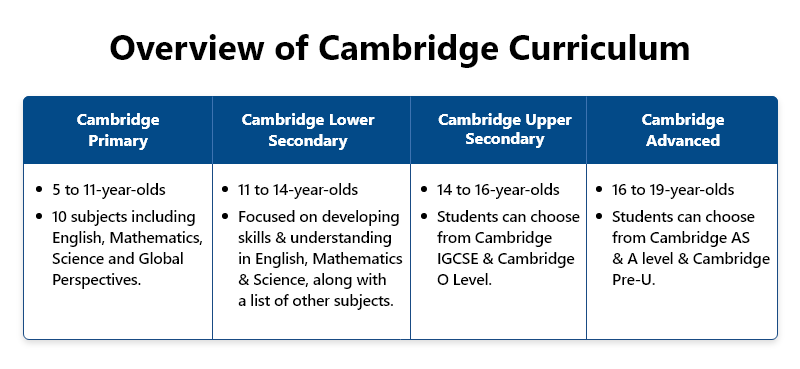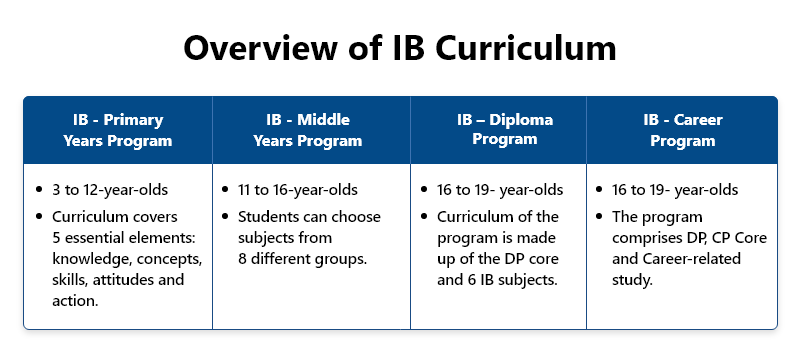Kavya, a parent from one of India’s top cities, Mumbai, had chosen an international curriculum school for her child, five years ago. With her son, soon entering high school, she was finding answers to a major question – Do Indian universities accept international curriculum grades and scores?
Kavya is one of the thousands of parents who have the same question in mind. Having counselled students and parents in India, we understand your dilemma. We are here to not just give you the answer but also support you in making the right curriculum decision for your child.
|
An ISC Research report indicates that, within the last five years, the number of international schools in India has grown by over 45%, while student enrollment has increased by over 70%. |
The international curriculum school sector in India is on the cusp of significant expansion. In the last decade alone, several parents have chosen to educate their children in international boards.
A slightly higher fee structure, as compared to CBSE schools, is no more a factor that’s holding parents back from choosing for international boards. However, understanding the Indian market, fees at these schools have also become suitable, allowing a range of fee structure variations.
|
India is experiencing an increasing demand for high-quality international education. According to management consultancy firm Technopak, by this year, India’s private education market will have doubled in value within the space of just four years. |
As a parent, one of the most important factors that you would consider before choosing a curriculum for your child is the quality of education and how it impacts her future. This is the same reason why many parents are moving towards an international curriculum. CBSE and ICSE are known for memory-based learning and exam-centric education systems.
On the other hand, both IB and Cambridge boards offer a more holistic approach with research-based learning, global-level quality, and skill-based assessments.
Having said that, there are still a few myths around the international curriculum options that become a barrier between your child and good quality education.
What are the International Boards in India?
Before we analyse the myths and acceptance of these in the country, let’s first explore and understand the international curriculum options available in India for your child.
Cambridge Assessment International Education (CAIE)
The England-based Cambridge board offers a mix of the foundation on core subjects and cross-curricular activities. Encouraging learners to engage with a variety of subjects and make connections between them are fundamental to the philosophy of the board.
Here’s data on the increase in students studying Cambridge Assessment International Education (CAIE) in India.
Recommended Read: Your Guide To Cambridge Curriculum: Is It The Right Board For Your Child?
International Baccalaureate (IB)
India ranks #6 in the world in teaching the IB board with 169 schools in the country offering the curriculum. The Switzerland-headquartered curriculum encourages your child to become inquisitive. Ensuring that students put their critical thinking to the test at every step, the board encourages students to challenge traditional aspects.
The rigorous nature of the program prepares students for academic success at university. In any country, university study requires students to have a profound level of skill in everything from time management to independent learning, writing and analysis. These foundations for university life are fundamental in the Diploma Program. – Ms Stephanie Leong, Head of Development and Recognition, IB Asia Pacific
Recommended Read: Expert Guide to International Baccalaureate (IB) Curriculum [Everything You Need To Know]
Acceptance of International Curriculum in Indian Universities
The demand for international boards among Indian parents is certainly growing in India. However, as mentioned earlier, there are a few myths that have become a barrier, creating a sense of doubt.
As a parent, you would’ve heard from friends and family that international boards are for students who want to study abroad. It’s often presumed that these curriculum options are not accepted in Indian universities.
Let’s begin by telling you that this is not true. This misconception not just affects your decision, but also makes you give up on a holistic and global learning experience for your child.
Acceptance of these boards works in two ways. With Indian students increasingly opting for international boards, Indian universities too have recognised the demand and thus have opened their doors to accepting students from different curricula and not just the national ones. Both IB-DP, CP, and Cambridge Advanced are treated as equivalent to CBSE and ICSE grade 12.
|
Over 420 schools in India offer Cambridge programs and qualifications today. In 2016-17 alone, there were over 68,000 entries for Cambridge IGCSE and Cambridge International AS & A-Level exams in India. On the other hand, about 140 schools in India offer IB programs. |
With the increasing number, many top national and private universities that are considered to provide global-level education have announced the acceptance of international boards.
Students from these boards are no more under the pressure to study abroad just because they passed out of an international curriculum. With the right analysis and expert guidance, parents and students alike have realised that curriculum is certainly the foundation for their future, but it’s no eliminator.
In fact, students from international boards have an added advantage when they apply for college admissions – even more in India. Here’s why:
-
Global Perspectives
Indian colleges are aiming to put themselves on the world map with their quality education and students from different backgrounds. The University of Delhi and IITs have a huge percentage of international students.
As a student from an international board, your child has global exposure and perspective (Cambridge has ‘Global Perspectives’ as a subject!) to mingle with students from other countries. They’re also prepared for international collaborations, thanks to projects they already worked on, at school.
-
Proactive Learning
One of the major reasons for parents choosing the international curriculum is its approach to learning. The boards focus on enabling students to discover new abilities and develop skills that help them in the future including college and career.
College admissions are changing in India – moving from grade-based to more profile-oriented including the student’s extracurricular activities. Having studied in the international curriculum, your child has the ability to stand out from the crowd, courtesy of her overall development through non-academic activities that were a part of her school education.
Cambridge learners acquire knowledge, skills and understanding that enable them to enter or re-enter the Indian education system without difficulty. They are better prepared for more independent study. It is beyond learning facts. Instead, we develop students who have a love of learning and are self-directing. The approach fosters an active learner. Many students who study Cambridge qualifications stay on for junior college courses and at Indian universities.– Cambridge International Examinations(CIE), as told to Hindustan Times
-
Subject & Career Clarity
Both IB and Cambridge boards focus on in-depth subject knowledge. Right from the Middle School Program, your child chooses the subjects of her interest and her learning is more knowledge and research-based.
That’s one of the reasons why students from international boards have better clarity of the fields they want to explore in the future and an understanding of independent learning. This is a major attraction for Indian universities when admitting students.
Recommended Read: Changing Curriculum After Grade 10? Ask Your Child These 3 Questions!
Top Colleges that Accept International Curriculum Students
|
43% of IB students study at Indian universities, according to the IB Organisation’s data. |
The Association of Indian Universities released a list of state and central universities that accept international curriculum students. Some of the top-notch universities like the Universities of Mumbai, Delhi, and Pune, Narsee Monjee Institute of Management Studies, and Gujarat University recognise the international programs.
Adding to the list are the National Institute of Open Learning, the Association of Indian Universities, and other state education departments including Maharashtra, Goa, West Bengal, etc.
As the IB curriculum has grown in popularity in schools across India, its recognition and value to universities have also increased. Currently, 274 universities in the country recognise the IB with official policies for admitting IB students to their courses. Universities in Mumbai have noted that they look forward to having IB students in class because they are the ones that get others talking, and are the differentiators in the class,” says Stephanie.
|
Aditti Agarwal, former Cambridge student and currently studying Electronics and Telecommunication Engineering at the University of Mumbai, says (as told to cambridgeinternational.org):
|
Acceptance of International Curriculum in National Exams
Apart from Indian colleges, top national-level exams as well as the predicted scores of international boards for their exams and courses. Below are the exams and fields where you can apply, like other curriculum students:
- Medicine
For all the students in international boards aiming at the medicine entrance, your child must understand the eligibility criteria. Your child should have physics, chemistry, and biology in grade 12.
- Architecture
The eligibility for the B. Arch Program is 50% marks with Mathematics as a compulsory subject in grade 12. Students should clear the National Aptitude Test in Architecture (NATA), conducted by the Council of Architecture.
If your child wants to apply to colleges and the result is still not out or she has applied for re-correction, she is still eligible to apply. Moreover, your child will be required to submit an attested certificate from the principal that she is a science student meeting the basic eligibility of the entrance exam.
- Engineering
Engineering entrance exams such as IIT-JEE, VITEEE, and more, also accept international curriculum students. Your child is allowed to appear for the test before the exams. However, if your child clears these exams, and her final grades are not declared at the time of the counselling, the admission will be provisional.
An Overview of Univariety Data
Let’s look at data from Univariety’s large network of over a lakh students.
A higher percentage of students from Cambridge have chosen to study in India, compared to IB curriculum students. However, pass-outs from both boards have joined top Indian universities. 
Recommended Read: 7 Proven Pillars to Choose the Best Curriculum for Your Child’s Future
International Curriculum: To Choose or Not To Choose?
International curriculum options are no doubt one of the best choices for your child’s future, whether or not she studies abroad. If you want to provide good quality education with knowledge and research, both IB and Cambridge make for great options!
However, making this choice should be done with guidance and analysis. It’s the future of your child and you want to provide the best possible education.
There are several questions and factors that play a huge role in deciding the right curriculum for your child. More often than not, parents rely on advice from friends and family, whose suggestions are based on their expectations.
Find Out What Your Child Needs
We highly suggest you skip that approach and instead make a decision by yourself.
Developed by Univariety with inputs from top CBSE educators, International Baccalaureate Organisation, Cambridge International, and University Faculty, Curriculum Selector is the world’s first curriculum evaluation program for parents that offers a scientifically researched roadmap to choosing the right curriculum for your child.
You will go through the following key steps that will help you make the big decision.
- Deep Fitment Analysis
First, a questionnaire designed around scenarios based on different factors will help you collect your thoughts and reconsider decisions. Coupled with this, you will receive a Deep Fitment Analysis at the end.
- Expert Modules
These informative modules will give you insights into the difference between each curriculum and to critical skills that your child needs for the future.- Best-Fit Curriculum Recommendations & Detailed Report
The Recommendations are based on highly reliable research data. Additionally, they are scientifically designed by integrating qualitative inputs with analytical methods.
- Personalised Counselling Session
A one-on-one review of your expectations as well as the report with a counsellor. This will help you get an interpretation of your analysis from a guidance expert.
- Best-Fit Curriculum Recommendations & Detailed Report
Summing It Up
If your child wants to study in India, you can still choose international curriculum schools.
To help Indian students apply for undergraduate programs within the country, these international boards also shifted their result announcements according to Indian standards. This is because most Indian colleges close applications by early June, and internationally, results for higher secondary examinations are out only in June-July.
In fact, as we discussed above, international boards only add advantages and value to your child’s college admissions and career. Curriculum is only a stepping stone for your child’s future and not an elimination of career opportunities.
So, start planning now! Analyse, use Curriculum Selector and make the RIGHT decision for your child.
Have any questions? Ask us below!
When Harini Prasad is not busy researching about top trends in education and learning techniques for students, you will find her writing about all things fashion, travel, cinema, and music. A millennial poster-child, Harini is a former lifestyle journalist with specialisation in child rights, gender, and new media journalism. Currently, she is busy exploring the world of marketing and content creation.


![Acceptance of International Curriculum in Indian Universities [Where Can Your Child Apply?] Acceptance of International Curriculum in Indian Universities](https://www.univariety.com/blog/wp-content/uploads/2020/08/Blog-banner-image-1.jpg)



4 Comments
Hello,
My son did his As level(Year 12 Edexel curriculum)from a BritishSchool in Qatar.Is he eligible to attendundergraduate course or Engineering course in India in this year(2024/25)
Kind regards,
Thank you ma’am for reaching out. It totally depends on the particular college or University & the curriculum your son is interested in, it’s always better to have more than 1 option and reach out to them directly via official university mail or contact number.
Nice article , cleared almost all doubts I had about IGCSE board.
nice post